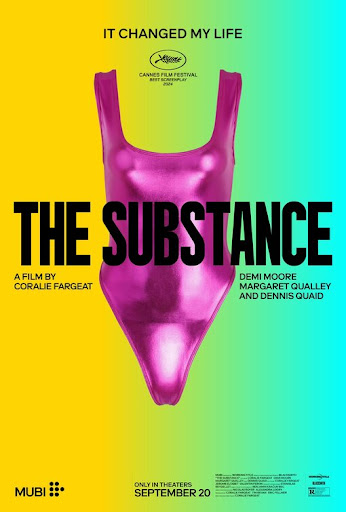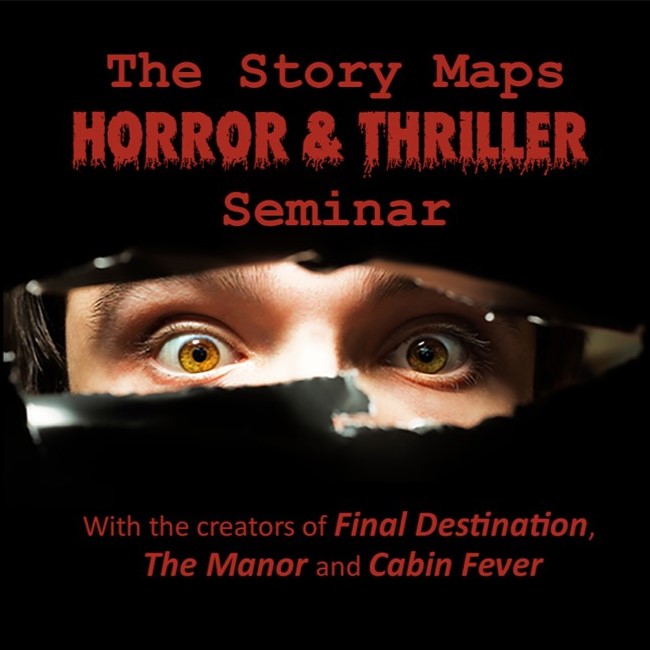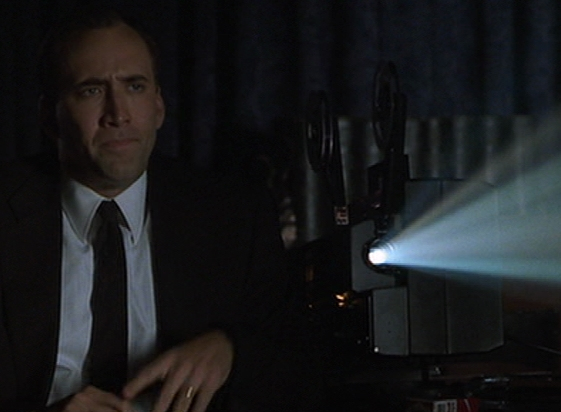Horror at the Oscars (Concept Creation and “The Substance”) by Daniel Calvisi

When we think of the Oscars, we don’t immediately think Horror movies. But it happens. This year, we got The Substance with five nominations and Nosferatu with four. Alien: Romulus claimed one nomination. Academy-lauded Horror films of the past include The Sixth Sense, Get Out, Misery, The Exorcist and Best Picture-winning The Silence of the Lambs, which many label a Horror film, although I’m not sure I agree.
I’d also make a case for Parasite (Winner Best Picture and Best Original Screenplay 2020) being considered a “slow burn” horror story. Consider three big structural elements native to the genre: There is a terrifying reveal late in the film (the man trapped in the basement); it all builds to a horrific incident of violence (the party); and it ends with a very dark coda that offers up a nice bit of dramatic irony (the new guy in the basement).
Get Out is the best example of “elevated” horror success in the past decade, and Jordan Peele deservedly took home the Best Original Screenplay Oscar in 2018. There is a lot to say about the story construction of Get Out that I get into in the new edition of my book, but let’s focus on one of 2024’s breakout films (in a year where there were a lot of breakout horror films).
The Substance made its mark not just with its outrageous body-horror moments (and they are outrageous!), but I think it primarily got noticed (and possibly greenlit) due to its IDEA, that was simultaneously, classic, relatable and relevant. A logline: A desperate actress turns to a mysterious, regimented procedure that creates a younger version of herself, but when she tries to game the system, she’s met with increasingly disastrous consequences and finds herself at war with her starlet alter-ego. It’s a modern, satirical take on the doppelgänger myth meets Hollywood. And it’s a great concept.
For the record, I’m not even talking about the execution. Honestly, I thought there were problems with the screenplay and the film, and it ultimately didn’t work for me, although it definitely held my attention the entire time and it will haunt my psyche until my eventual death (objective achieved?). I’m just pointing out the inherent “buzzworthiness” of Coralie Fargeat’s idea, which for storytellers looking to bring attention to their work amidst a glut of competing content, seems like half the battle these days.
The longer I spend in this business, I come to the conclusion that THE IDEA MUST ALWAYS COME FIRST, both in the writing and marketing of your original story. If your concept doesn’t grab attention, you’re dead in the water – you won’t get read requests and your screenplay will sit in a proverbial drawer, no matter how well-executed it may be. It’s possible for only great execution on the page to power a script and its writer to notoriety, but it’s very rare, because sending someone a script and telling them “This is really well-written” is not enough to get them to commit to reading it. A decision-maker needs to see potential for a piece of business. They need to hear an elevator pitch or read a logline and think “I can sell that.” Even if a recommendation is coming from their best friend, a busy professional doesn’t have time to read a script “just for fun.” They’re still going to evaluate whether it sounds like it could help advance their career before they fire up that PDF.
Stating the obvious, to even get to the point where a reader is blown away by your writing, they have to first agree to take the time to read the script. But how do they make that decision? By loving your concept, which must be expressed well in a logline. It’s the nature of the beast. It’s inescapable – even the greatest writers need to begin with a great concept if they’re even going to get up to the plate.
Concept creation is too important to leave up to the whimsy of your muse. As with writing, practice makes perfect. The more ideas you develop, the more likely you are to eventually pluck a diamond from the rough. Although it has to come from your own unmistakable creative cortex, the rub is that you won’t really know if you’ve got a winner without running it by others. You have to “field test” a concept and gauge reactions to determine the number of carats and the complexity of the cut.
The more I delve into the Horror genre, I find that the best ideas begin with a primal fear. A writer spins a new riff on a universal feeling of dread that is felt by people all over the world. In the case of The Substance, it is the fear of aging, with a particular focus on women’s fear of losing everything when the patriarchy determines they are no longer attractive or relevant. (There must be something to this fear – I seem to remember a small film from a few years ago that riffed on it and went on to become the biggest hit in Warner Brothers’ history.) It’s not that men can’t relate to or enjoy the premise, but it seems clear to me that the target audience for The Substance was primarily women from the get-go. And it’s very smart to have a well-defined target audience in mind for your movie/TV series/book/comic book/social media clip. If someone asks you, Who is this for? your answer can’t be “everyone.” There’s no way to market to “everyone.”
But there is a way to generate your own idea for a buzzworthy genre story, and I think I’ve come up with an effective, creative tool for concept creation that won’t take too long to learn. It’s a process of building the elements of your story, similar to my Story Maps method that I’ve coached writers to use for over two decades, but with a particular focus on Horror and Thriller stories. I’ll be presenting it in my next online course that begins March 10, 2025 where writers will use it to build their own high-concept narratives to blow away the reader.
Let’s continue to build the story, using The Substance as our primary example. Once you have your primal fear, this should inform the central Theme, but it doesn’t have to be a direct offshoot. For example, in Get Out, the primal fear is a return to slavery, but the theme focuses on second chances. In The Substance, I’d say the theme is more closely related to that primal fear of being put out to pasture, but it goes deeper and focuses in on our protagonist’s action, which is an attempt to fight nature and find a magical cure for aging. But this is a fool’s errand, thus the theme The desperate attempt to fight aging is a path to destruction. It’s also an allegory for addiction, eating disorders, diet culture, Hollywood ideals, hubris, etc. It occurs to me that the story is both woman vs. nature AND woman vs. society, offering a complexity of concept that has allowed it to rise above being seen as just another schlocky special effects gross-fest and has garnered it so many awards accolades (even though it is also a schlocky special effects gross-fest, pure bliss for those of you who like those sorts of things).
So, you’ve got your primal fear (dismissal due to aging), your theme (it’s a fool’s errand to try to be younger), your archetype (the doppelgänger), your story template (the attempt to fight nature and play God, shades of Frankenstein), your subgenre (body horror), your world (Hollywood/fitness industry), your protagonist’s central goal (to become a beloved star again), her Achilles Heel (she needs to look perfect in public), her major misstep (she breaks the rules of the procedure), her predicament (her body keeps decaying) and the big climax (the New Year’s Eve show).
Compiling that list of dramatic elements after-the-fact may make it look easy. It’s not. Coming up with it from scratch is the challenge. As with any creative project, sitting down, grabbing that blob of clay and starting to mold it is often the toughest part. But when it comes to writing these kinds of tales, there is a clear-cut process you can go through, in an order I’ve determined to be the most efficient and I believe it can help you construct a GREAT CONCEPT and a GREAT STORY.
But that’s not all you need. So what’s left? What do you still need? Well, if we’re talking about The Substance…
Butts. Lots of butts. Seriously, what’s with all the butts?

Good luck and happy writing,
Dan Calvisi
Work with me






Leave a Reply
Want to join the discussion?Feel free to contribute!